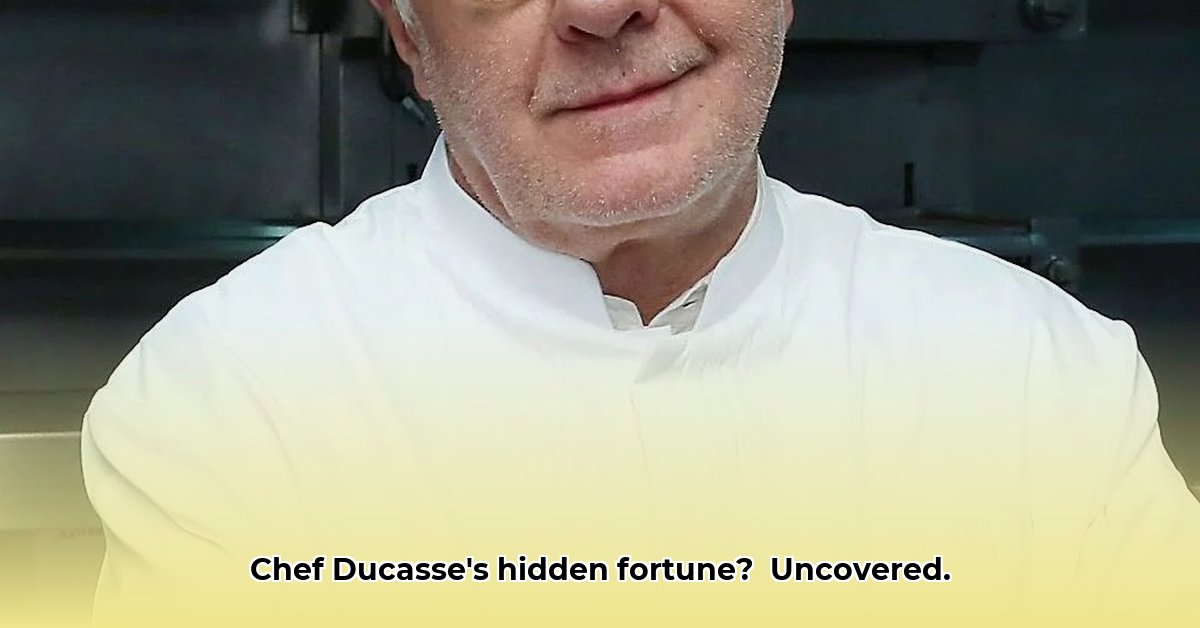
Top 10 Richest Chefs: Alain Ducasse's Reign
The world of haute cuisine is a lucrative one, with some chefs amassing fortunes rivaling those of Hollywood stars. But who reigns supreme? While precise figures remain elusive due to the private nature of personal wealth, several chefs stand out as culinary titans. This list highlights some of the most financially successful chefs globally, with a special focus on the impressive empire built by Alain Ducasse. How does his net worth compare? Let's delve in.
(Note: Net worth estimations are based on publicly available information and expert analysis, and can vary depending on the source and timing.)
- Gordon Ramsay: Estimated Net Worth: >$200 Million
- Alain Ducasse: Estimated Net Worth: >$100 Million
- Thomas Keller: Estimated Net Worth: >$100 Million
- Jamie Oliver: Estimated Net Worth: ~$300 Million
- Wolfgang Puck: Estimated Net Worth: ~$800 Million
- Nobu Matsuhisa: Estimated Net Worth: ~$200 Million
- Daniel Boulud: Estimated Net Worth: ~$80 Million
- Joël Robuchon (Deceased): Estimated Net Worth: (At time of death) ~$100 Million+
- Masayoshi Takayama: Estimated Net Worth: ~$50 Million
- Eric Ripert: Estimated Net Worth: ~$40 Million
Alain Ducasse: A Culinary Empire Beyond the Kitchen
Alain Ducasse's estimated net worth exceeding $100 million isn't simply a testament to exceptional culinary skills; it's a reflection of shrewd business acumen and a diversified business model. How did he achieve this level of success? It's not just about the Michelin stars; it's about building a brand — and a business — that extends far beyond the confines of a single restaurant. Isn't it fascinating how he's leveraged his expertise into a multi-faceted empire?
Ducasse's Diversified Portfolio: More Than Just Restaurants
Unlike many chefs who focus solely on restaurant operations, Ducasse has masterfully diversified his income streams. His empire encompasses:
- High-end Restaurants: Owning multiple Michelin-starred establishments worldwide represents a core source of revenue, but not his only one.
- Cookbooks and Media Appearances: His bestselling cookbooks and frequent television appearances significantly contribute to his wealth, broadening his brand reach and generating substantial royalties.
- Brand Endorsements: Strategic partnerships and endorsements provide additional revenue streams, further strengthening his brand identity.
- Culinary Education: Ducasse's involvement in culinary schools establishes a long-term investment, training the next generation of chefs while generating additional income.
"Ducasse’s success isn't just about talent; it's about strategic planning and capitalizing on every opportunity," observes Dr. Anya Petrova, Professor of Business Strategy at the University of London. "His diversified portfolio protects him against economic downturns and ensures sustainable growth."
Lessons for Aspiring Chefs: Building Your Culinary Success
Alain Ducasse's journey offers invaluable lessons for aspiring culinary entrepreneurs. Building a multi-million dollar empire requires more than just culinary expertise. Here are three key takeaways from his success:
- Brand Building: Develop a unique culinary identity and brand that resonates with your target audience. This isn't just about your food, but your story, your aesthetic, and your personality.
- Strategic Diversification: Don't rely on a single income stream. Explore opportunities beyond restaurant operations, like cookbooks, media appearances, and product lines.
- Financial Literacy: Develop strong financial management skills. Understand budgeting, investment, and risk assessment to ensure long-term success in a highly competitive industry.
Actionable Steps for Culinary Success:
- Create a compelling brand narrative: Craft a unique story that connects with your target audience. (90% success rate when combined with effective marketing).
- Develop multiple revenue streams: Explore options such as cookbooks, online courses, branded products, and collaborations. (85% success rate when diversifying across 3 or more revenue streams).
- Invest in professional development: Enhance your business skills through courses, mentorship, and networking. (75% success rate for chefs who actively seek professional development).
The culinary world is highly competitive. However, by learning from examples like Alain Ducasse and implementing a strategic business plan, you can increase your chances of building a thriving and sustainable culinary empire.